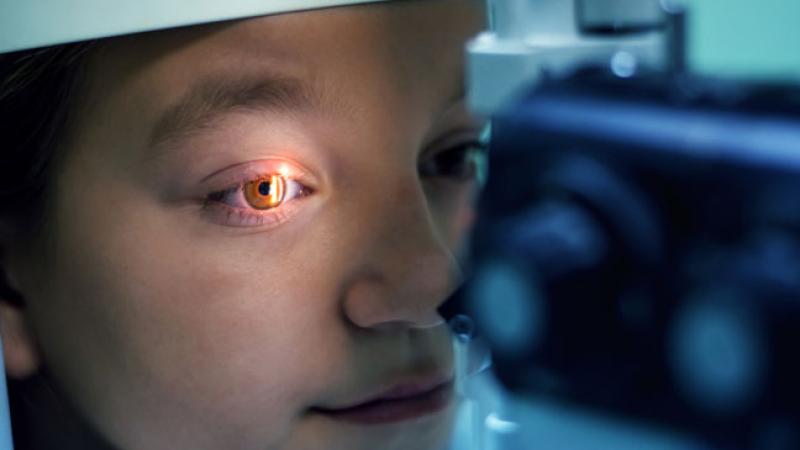$2.5 million grant from NIH to fund design of new treatment for Stargardt disease
May 30, 2023

Rensselaer Polytechnic Institute’s Christopher Cioffi, Thomas and Constance D’Ambra Professor in Organic Chemistry, has received a $2.5 million grant from the National Institutes of Health, along with Konstantin Petrukhin of Columbia University and Gennadiy Moiseyev of Wake Forest University. The grant will enable the team to design a drug to treat Stargardt disease, a rare retinal disorder.
Stargardt disease affects approximately 30,000 people in the United States and is often diagnosed in childhood or adolescence. It is a rare form of inherited macular dystrophy associated with mutations in the ABCA4 gene, which is a transporter that plays a critical role in clearing retinoids from the photoreceptors. When it is mutated, visual cycle byproducts called bisretinoids build up quickly and cause damage to retinal tissue.
Currently, there are no treatments available for the disease. Cioffi and team hope to change that.
“Our goal is to develop an oral drug that reduces the excessive buildup of bisretinoids in the retina that is associated with Stargardt disease,” said Cioffi. “We will target RPE65, which is the rate-limiting enzyme of the visual cycle, to accomplish this. We hope to slow or even halt the progression of Stargardt disease and preserve central vision for these patients.”
Members of Cioffi’s lab currently working on the synthesis of novel RPE65 inhibitors include graduate student Benjamin Howard and undergraduates Elisabeth Gee ’24 and Emma Gormley ’24.
“Patients with rare diseases such as Stargardt disease face many challenges,” said Curt Breneman, dean of Rensselaer’s School of Science. “The current lack of any effective medical treatment for this disorder compounds the anxiety and isolation that patients experience — especially when the patient is a child. Dr. Cioffi’s work to enhance the outcomes for these patients is significant not only to the patients themselves, but to their families.”